|
JEAN PICHORE - ROGER MORTIMER AND QUEEN ISABELLA
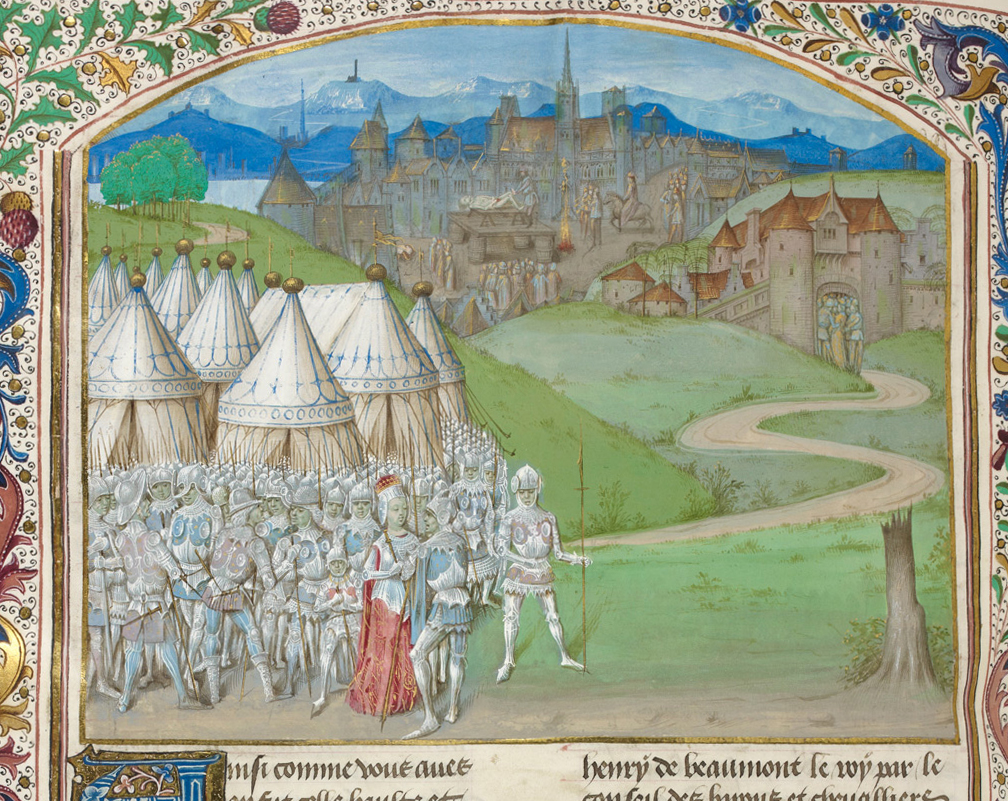
Jean Pichore, Public domain, via Wikimedia Commons |
- This was from a 15th-century manuscript by Jean Pichore
(-1521), an illuminator, that
was included in the chronicle of fellow illuminator
Jean de Wavrin
(1400-1474).
-
Isabella of France (1295-1358) and Roger Mortimer (1287-1330) are depicted in a 15th-century manuscript at the execution of Hugh Despenser
(1287-1326).
- Isabella was married to
King Edward II (1284-1327) of England.
Isabella was promised in marriage by her father to Edward II, the son of King Edward I of England, with the intention to resolve the conflicts between France and England over the latter's continental possession of Gascony and claims to Anjou, Normandy and Aquitaine. (Wikipedia)
|
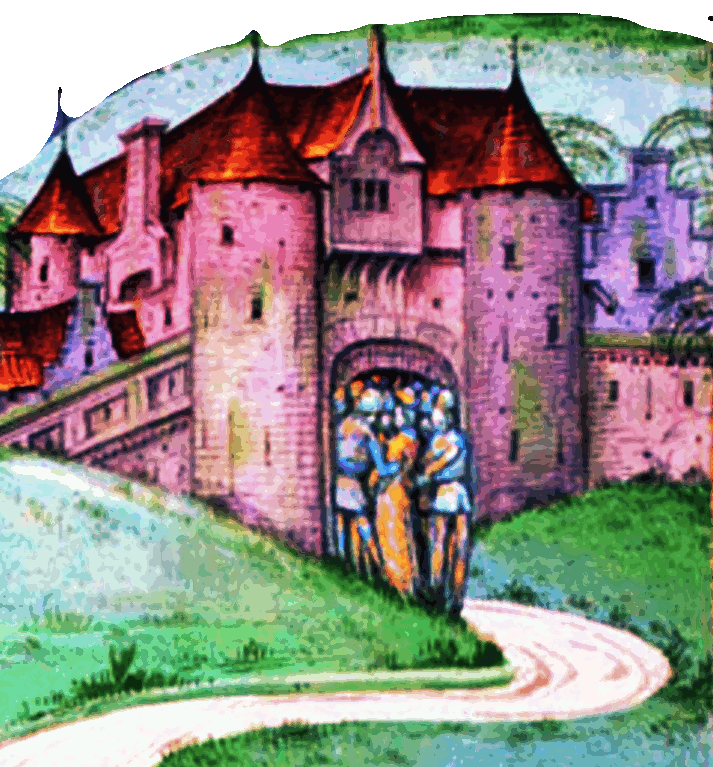
Caernarfon Castle in
Wales |
- Edward II was born in Caernarfon Castle in Wales in 1284.
- He was the son of King Edward I
(1239-1307) and Eleanor
de Clare (1241-1290) of Castile, daughter of Gilbert de Clare, 6th Earl of
Hertford.
Edward I may have been a tough ruler, but he had a tender side too. In 1290, his wife, Eleanor of Castile, died near Lincoln. He said, "In life I loved her dearly, nor can I cease to love her in death." (Assistant)
|

Royalty |
- Isabella was born in Paris about 1295 or 1296.
-
She was the youngest surviving child and only surviving daughter of King Philip IV
(1268-1314)
of France and House of Capet and Jeanne I (1273-1305) of Navarre.
-
Her brother, King Louis X (1289-1316) took the throne in 1314
but he died in 1316.
- Louis was succeeded by
his brother, Philip V (1291-1322) who died in 1322.
-
Philip V was succeeded by
his brother Charles IV (1294-1328) who took the throne in 1322
amd died in 1328.
-
Isabella who was Queen of England was the wife of King Edward II, and de facto regent of England from 1327 until 1330.
Philip built up centralised royal power in
France, engaging in a sequence of conflicts to expand
or consolidate French authority across the region, but
remained chronically short of money throughout his
reign. Indeed, he appeared almost obsessed about
building up wealth and lands, something that his
daughter was also accused of in later life. Isabella's
mother died when Isabella was still quite young; some
contemporaries suspected Philip IV of her murder,
albeit probably incorrectly. (Wikipedia)
|
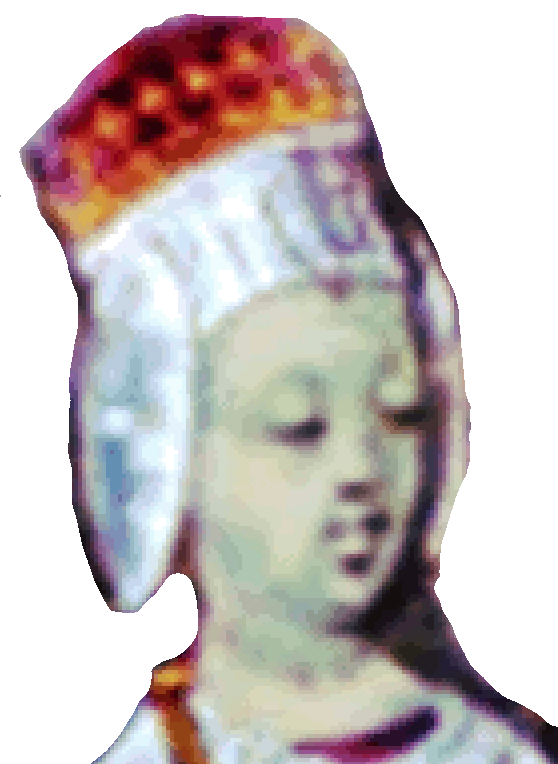
She-Wolf of France |
-
Isabella was notable in her lifetime for her diplomatic skills, intelligence, and beauty.
- She overthrew her husband, and took on a 'femme fatale'
role in plays and literature over the years.
- Isabella was usually portrayed as a beautiful but cruel and manipulative figure.
At the time of her marriage, Isabella was probably about twelve and was described by Geoffrey of Paris as "the beauty of beauties... in the kingdom if not in all Europe." (Wikipedia)
|
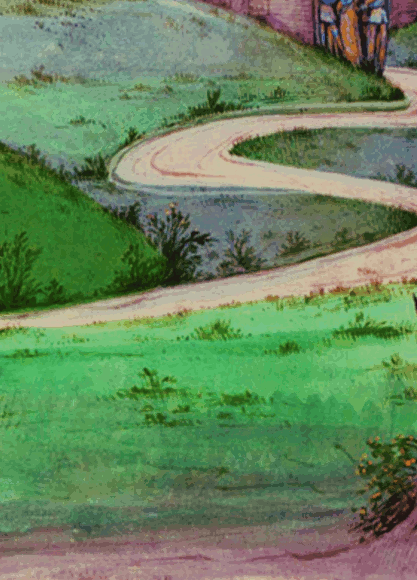
England joined to Wales |
- Edward's father, had been successful in subjugating Wales and joining it with England.
- In 1301, at the age of 16, Edward of Caernarfon became the first English prince to hold the title of Prince of Wales.
Though I be but prince of Wales, yet I am the king of courtesy. (Shakespeare)
|

Family tree |
- Edward I died on July 7, 1307, and his 23-year-old son succeeded his father as King Edward II.
The young king was a very different man to his formidable father and had little capacity to fill the role he had been born into. His reign of just under twenty years would prove extraordinarily dramatic and turbulent. (Kathryn Warner)
|
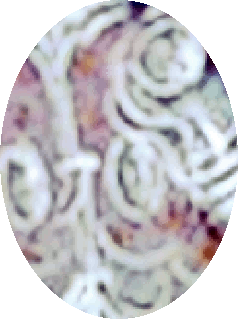
Baby blanket |
- Pope Boniface VIII had urged the arranged marriage as early as 1298,
when Isabella was age 2, but it was delayed by wrangling over the terms of the marriage contract.
- The renewal of the Anglo-French truce in 1299 led to the marriage of
her future father-in-law, Edward I to her father, King Philip
IVs sister who was named Margaret.
- Thus, further anticipating the marriage of Isabella to Edward II
when she was a mere babe.
Edward I may have considered a Castilian bride for
Edward II instead of Isabella and even increased her
dowry before the wedding. Edward I attempted to break the engagement several times for political advantage, and only after he died in 1307 did the wedding proceed. (Wikipedia)
|
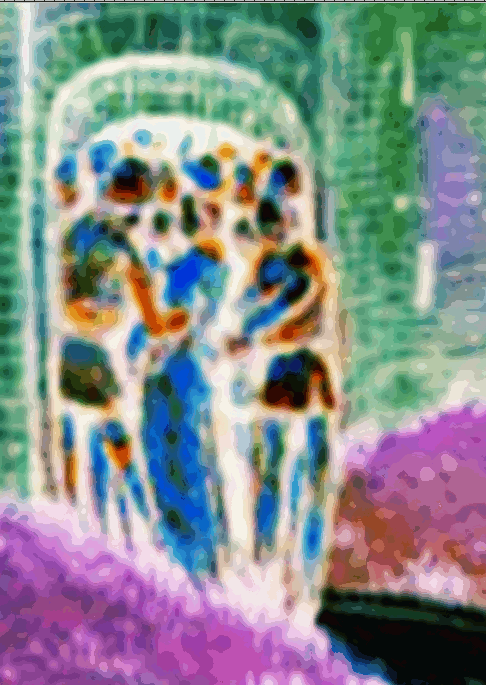
Wedding day |
- Isabella and Edward II were married at Boulogne-sur-Mer on January
25, 1308.
- She was age 12 and he was 24.
- Together,
they had four children including their eldest son, King Edward III
(1313-1377).
Edward was handsome, but also possibly formed close romantic attachments first to Piers Gaveston and then to Hugh Despenser the Younger. Edward found himself at odds with the barons, too, in particular his first cousin Thomas, 2nd Earl of Lancaster, whilst continuing the war against the Scots that he had inherited from Edward I. (Wikipedia)
|
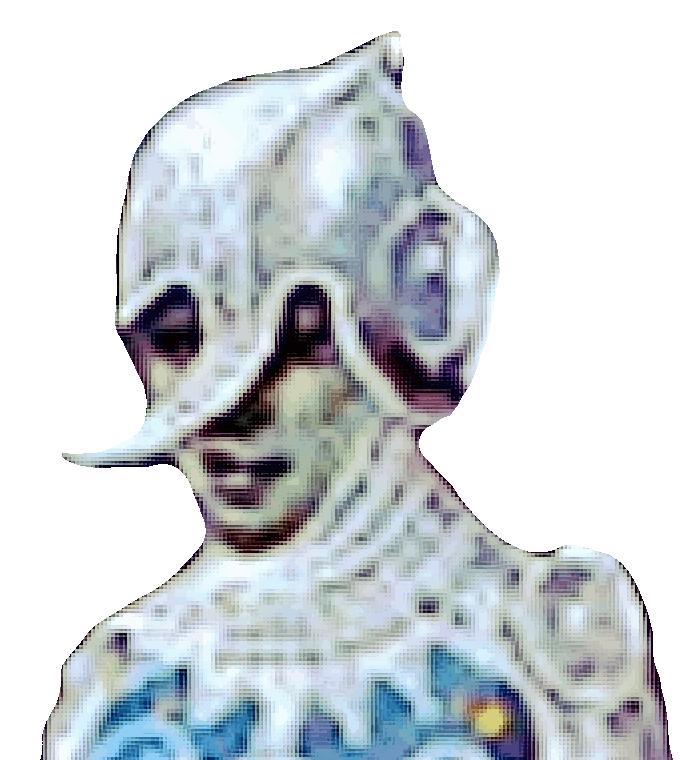
Piers Gaveston |
- Isabella soon discovered that her new husband was notorious for the patronage he lavished on his favorite, Piers Gaveston (1284-1312), 1st Earl of Cornwall.
- But
despite all, the queen supported Edward during these early years.
Edward had a close and controversial relationship with Piers Gaveston, who had joined his household in 1300. The precise nature of Edward and Gaveston's relationship is uncertain; they may have been friends, lovers, or sworn brothers. Gaveston's arrogance and power as Edward's favourite provoked discontent both among the barons and the French royal family, and Edward was forced to exile him. (Wikipedia)
|
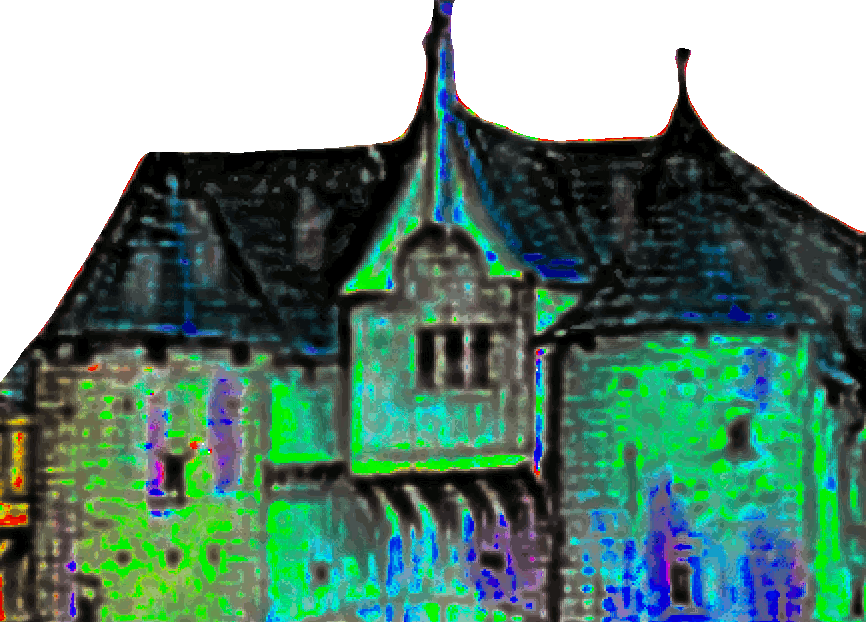
House of envy |
- Edward II chose to sit with Gaveston rather than
Isabella at their wedding celebration, causing serious offense
to her uncles Louis, Count of Évreux, and Charles, Count of
Valois.
- He then refused to grant her either her own lands or her own household.
- Edward
once again ignored Isabella during his
coronation feast, he lavished gifts upon his lover, not on
Isabella, and everybody noticed.
Piers Gaveston was an "arrogant, ostentatious" soldier, with a "reckless and headstrong" personality that appealed to Edward. Isabella, then aged twelve, was effectively sidelined by the pair. (Wikipedia)
|
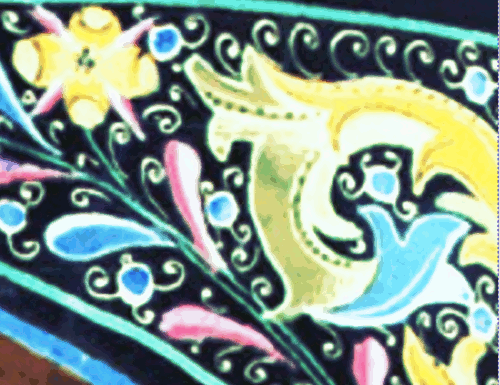
Jewels |
- He also gave Gaveston Isabella's own jewelry, which he wore publicly.
- She complained to her relatives,
especially her father, King Philip IV of France.
- Isabella complained to her father that Gaveston took her place next to Edward II, she received insufficient funds and Edward visited Gaveston's bed more than hers.
- It was
not a happy court.
Isabella's relationship with Gaveston was complex. For a time, her dislike of him was widely known, and she was said to be in contact with her father, the pope and cardinals in order to have him exiled. (Wikipedia)
|
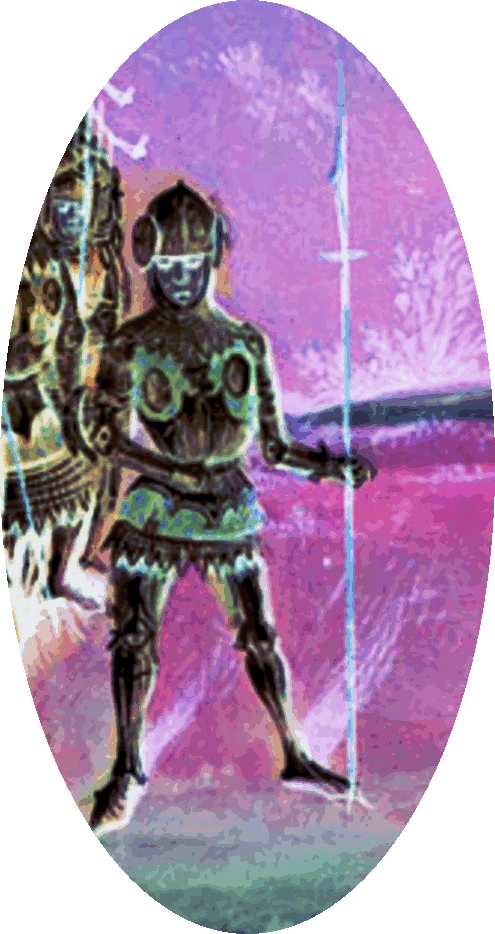
Earl of Lancaster |
- Tensions between Edward II and the barons remained high due
to their dislike of Piers Gaveston.
- Edward found himself at odds with the barons, too, in particular his first cousin Thomas, 2nd Earl of Lancaster,
in the continuing war against the Scots that he had inherited from Edward I.
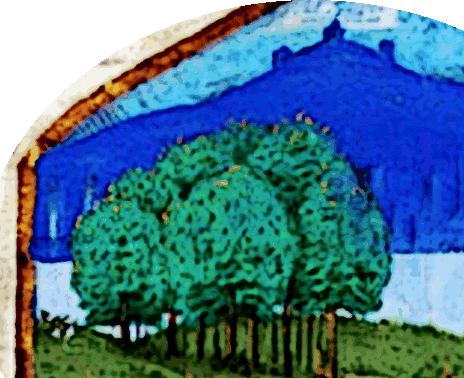
Exiled from England |
- Isabella's father,
King Philip IV of France, was irate when he heard how badly
Edward II was treating his daughter.
- Philip secretly
funded the barons to go after Edward and Philip was also
influencing matters in the English Parliament.
- Additionally, the earls opposed to the king kept their personal armies mobilized
late into 1311.
The sight of London to my exiled eyes
Is as Elysium to a new-come soul.
(Christopher Marlowe, Edward II) |
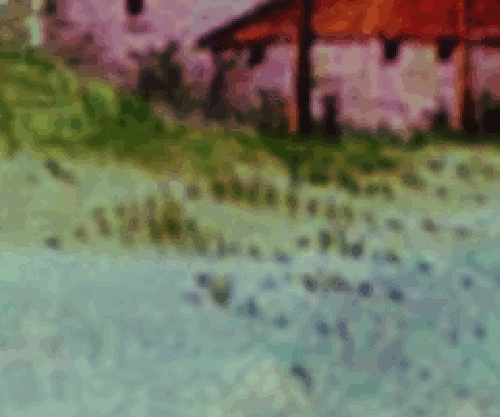
Exiled from court |
- Isabella had begun to build up her own supporters at court, principally the Beaumont family, itself opposed to the Lancastrians.
- In 1311, Edward conducted a failed campaign against the Scots, during which he and Isabella barely escaped capture.
- In the aftermath, the barons rose up, signing the Ordinances of 1311, which promised action against Gaveston and expelled Isabella and Henry de Beaumont from court.
- Edward was forced to exile Gaveston to Ireland for a period and began to show Isabella much greater respect, assigning her lands and patronage.
By now Edward had become estranged from his cousin, the Earl of Lancaster, who was also the Earl of Leicester, Lincoln, Salisbury and Derby, with an income of around £11,000 a year from his lands, almost double that of the next wealthiest baron. (Wikipedia)
|
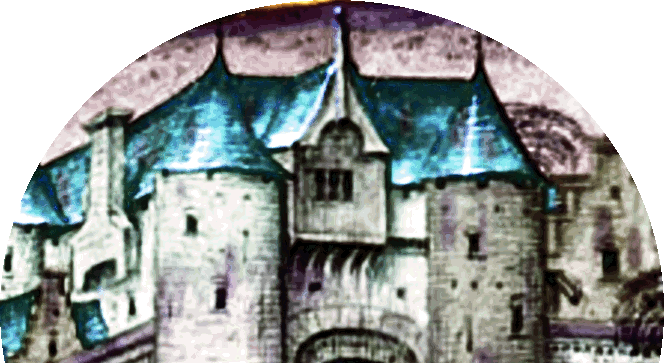
York in January |
- Edward responded to the barons and
earls by revoking the Ordinances and inviting Gaveston back to England
after a year apart.
- This enraged the barons even more.
- The two were reunited at York in January 1312, just as
England fully descended into civil war.

Charismatic |
- Displeased that Gaveston had returned to the 'family,'
Isabella decided to change tactics and work with him.
-
Isabella was
very charismatic and capable of getting people to do what she
wanted.
- She formed a working relationship with Gaveston and used her
association with the French monarchy, her father, to bolster her own authority and power.
-
Using her own supporters at court and the patronage of her French family, Isabella attempted to find a political path through these challenges.
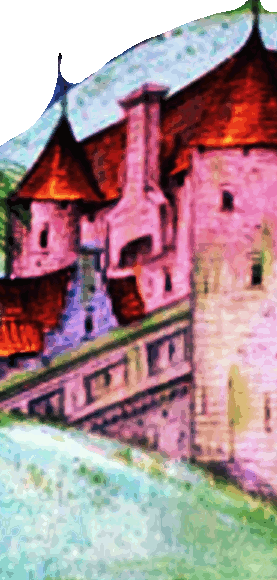
Happier home? |
- Where Isabella once pitted herself against him she now became
his ally which was a smart move because it worked to unite the
royal household, but only for a short time.
- The barons,
still unhappy, rose up again but this time not only against
Gaveston, but his new ally, Isabella.
- They briefly
expelled her from her own court and with all this going on,
her realm was in a full-blown civil war by late 1312.
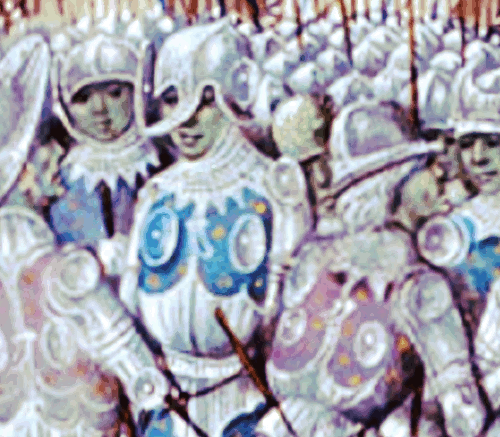
Surrounded the
castle |
- Isabella sided with Edward II as he fought the barons, as did
Gaveston, but that summer the king's favorite met with a
brutal end.
- Edward left Isabella against her will in Northumberland while he unsuccessfully attempted to fight the barons.
- The campaign was a disaster, and although Edward escaped, Gaveston found himself stranded at Scarborough Castle where his baronial enemies then surrounded and captured him.
- Guy de Beauchamp and Thomas of Lancaster ensured Gaveston's execution
in 1312.
- Isabella was only 16 or 17
years old when all this happened.
Led by Edward's cousin Thomas, 2nd Earl of Lancaster, a group of the barons seized and executed Gaveston in 1312, beginning several years of armed confrontation. English forces were pushed back in Scotland, where Edward was decisively defeated by Robert the Bruce at the Battle of Bannockburn in 1314. Widespread famine followed, and criticism of the King's reign mounted. (Wikipedia)
|

Calmer |
- That same year, Isabella, 17, who was
pregnant with her first child, gave birth to Edward III
and this helped calm her and she found her place as queen, but
it didn't settle her tensions in her court.
- Over the next
few years, England began falling apart.
For never doted Jove on Ganymede
So much as he on cursed Gaveston.
(Christopher Marlowe, Edward II) |
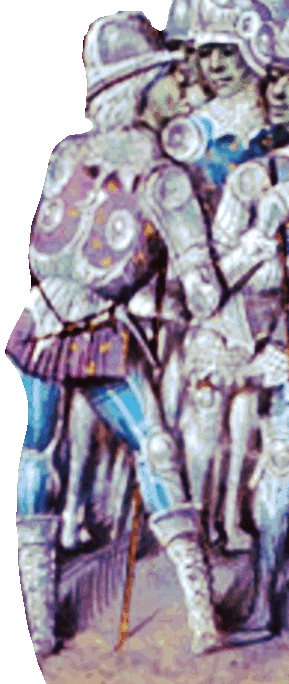
Rallying up the
troops |
- Edward II attempted to take revenge on the barons, resulting in the Despenser War and a period of internal repression across England.
- This began a series of armed confrontations with Scotland
and he suffered humiliation and a series of defeats by the
Scottish.
- Edward II was defeated by Robert the Bruce in
1314.
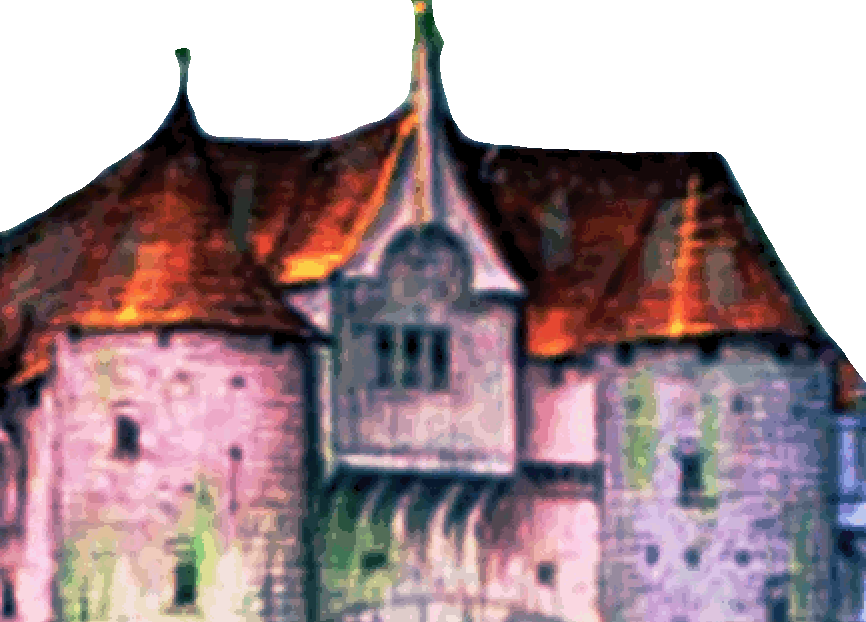
Homefront |
- Thomas of Lancaster reacted to the defeats in Scotland by taking increased power in England and turning against Isabella, cutting off funds and harassing her household.
- Isabella was
only 19 years old when all this happened.
- To make matters
worse, by 1315-17, a great famine descended on the country causing widespread loss of life, as
well as financial upheaval.
I see your love to Gaveston will be the ruin of the realm and you.
(Shakespeare, Edward II) |
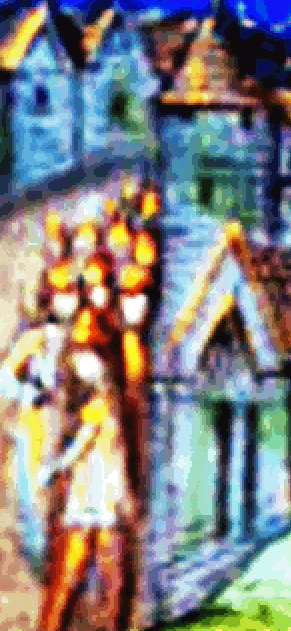
Barons surround the
castle |
- After Gaveston's death Isabella was also left in a precarious
position with the barons.
- They removed Isabella's funds
and tried to control her household to gain greater power, a
coup d'etat type situation.
- Isabella had always been
involved in the politics of the court, however, she started to
believe that if her husband couldn't rule properly maybe she
could.
The Scottish general Sir James Douglas, war leader for Robert I of Scotland, made a bid to capture Isabella personally in 1319. He almost succeeded in capturing her at York, with Isabella only just barely escaping. (Wikipedia)
|
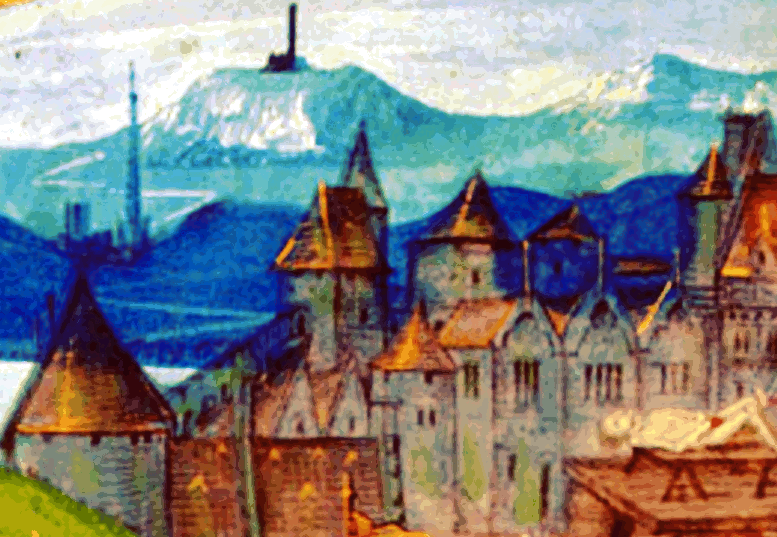
Government |
- Isabella responded by deepening her alliance with
Lancaster's enemy, Henry de Beaumont, and by taking up an
increased role in government.
- She began attending Council meetings and acquiring
more land for herself.
- In 1320, Isabella accompanied Edward to France to try and convince her brother, Philip V, to provide fresh support to crush the English barons.
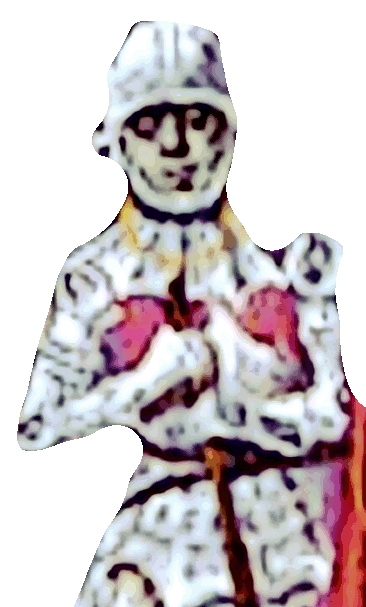
Hugh Despenser the
Younger |
- After the death of Gaveston at the hands of the barons, Edward
II turned to a new favorite, Hugh Despenser the Younger.
- Despenser rose to national prominence as royal chamberlain and a favorite of Edward II of England.
A royal chamberlain is a senior official in a royal household, historically managing household finances and domestic functions, and today, primarily responsible for ceremonial duties, protocol, and acting as a channel of communication between the monarch and their court or government. (Assistant)
|
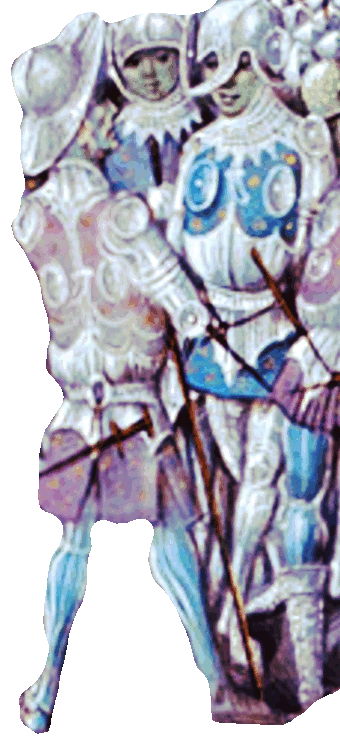
Hugh Despenser the
Younger |
- The Despenser family, in particular Hugh Despenser the Younger, became close friends and advisers to Edward
II and he was totally controlled by them.
- Recently named the ‘greatest villain’ of the
14th-century, Hugh Despenser the Younger, was a pirate and extortionist, and
had become the richest and most powerful man in England
in the early 1300s.
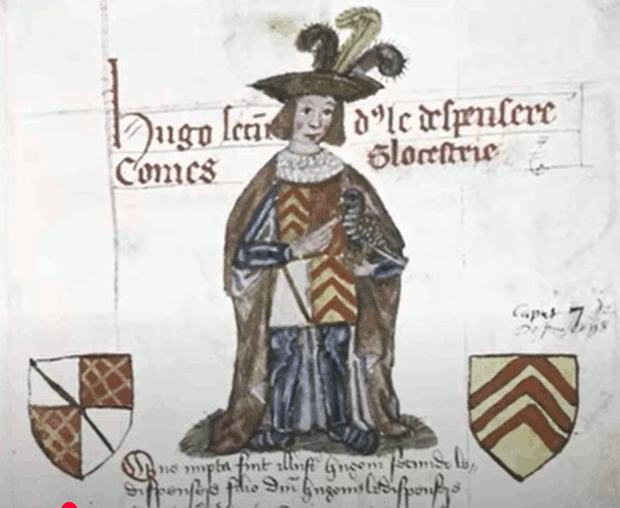
Hugh manuscript |
- Despenser was close to Edward II in age and he came from
a family that long supported the king.
- He had already made many enemies amongst the nobility of England
as did his entire family.
- Edward began lavishing
Despenser with gifts and Isabella was left even further in the
background because she was not able to form the same kind of
alliance with him as she had with Gaveston.
The Despensers were bitter enemies of Lancaster, and, with Edward's support, began to increase their power base in the Welsh Marches, in the process making enemies of Roger Mortimer de Chirk and his nephew, Roger Mortimer of Wigmore, their rival Marcher Lords. (Wikipedia)
|
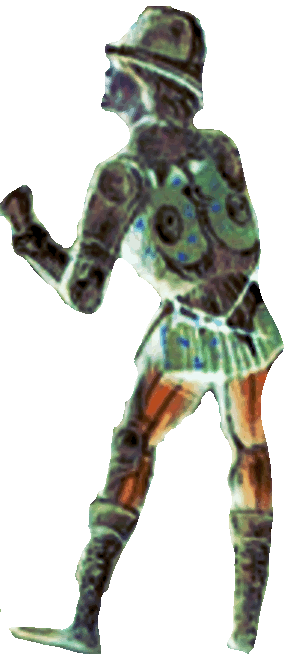
Hugh Despenser the
Elder |
- Hugh was a nobleman, born in the late 1280s; he was one of
two sons and the eldest of four children.
- His parents
were Hugh Despenser the Elder (1261-1326), 1st Elder of Winchester, and
Isabel de Beauchamp.
- William Beauchamp, who was Earl of Warwick,
and Maud Fitzjohn were his maternal grandparents.
- His paternal grandmother
was Aline Basset who was Countess of Norfolk and his grandfather Hugh Despenser was Justiciar of England.
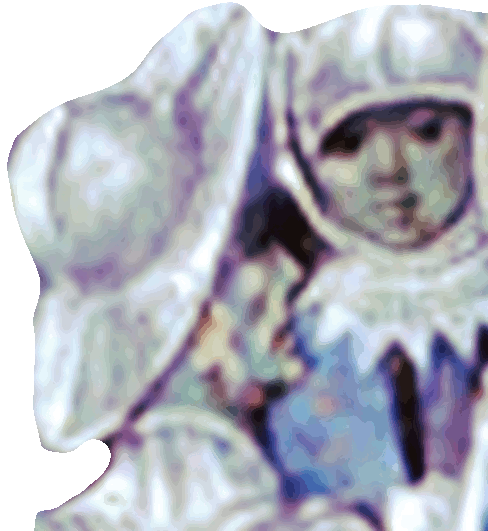
1st Elder of
Winchester with son
Hugh |
- Hugh the Younger’s father, Hugh the Elder, displayed undying loyalty to
King Edward I and his son Edward II for four decades.
- Combined with his talents as a diplomat and royal counsellor
he raised his son
up high in the royal ranks.
- This may have looked like a
good thing on the surface, at least for Edward, but it was one
of the most dangerous things he could have done.
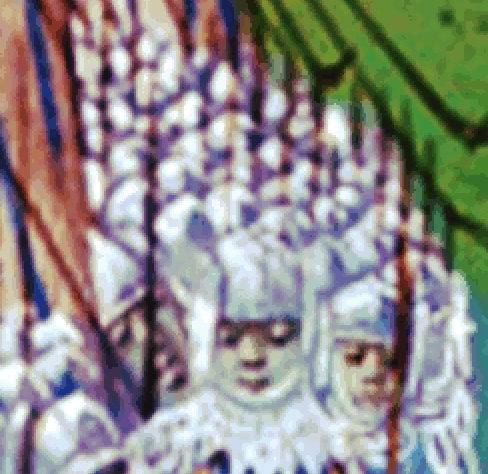
Seizing the
Despenser land |
- In 1321 Edward's cousin Thomas, 2nd Earl of Lancaster, and
a group of the barons, seized the Despensers' lands and forced King
Edward II to exile them.
- At the beginning of the Despenser
War in 1321, Edward mobilized his own faction and placed Leeds Castle under siege, Isabella was given the Great Seal and assumed control of the royal Chancery from the Tower of London.
-
Her youngest daughter
Joan, was born in the Tower of London in July 1321, when
Isabella
was about 25.
- It doesn't sound like the mutiny
began with Isabella and Mortimer.
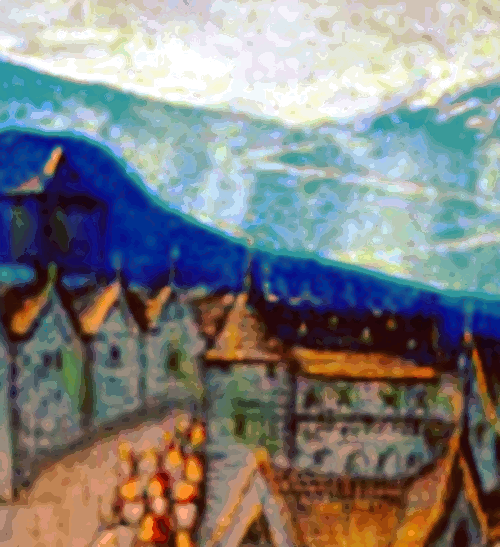
Trapped |
- Unfortunately for Isabella, she was still estranged from Lancaster's rival faction, giving her little room to maneuver.
- Lancaster's alliance moved against the Despensers, sending troops into London and demanding their exile.
Isabella publicly went down on her knees to
appeal to Edward to exile the Despensers, providing
him with a face-saving excuse to do so, but Edward
intended to arrange their return at the first
opportunity. Isabella's attempts, though heavily praised by the English, had very little impact and she had no lasting effect as a mediator for foreign or domestic affairs. (Wikipedia)
|
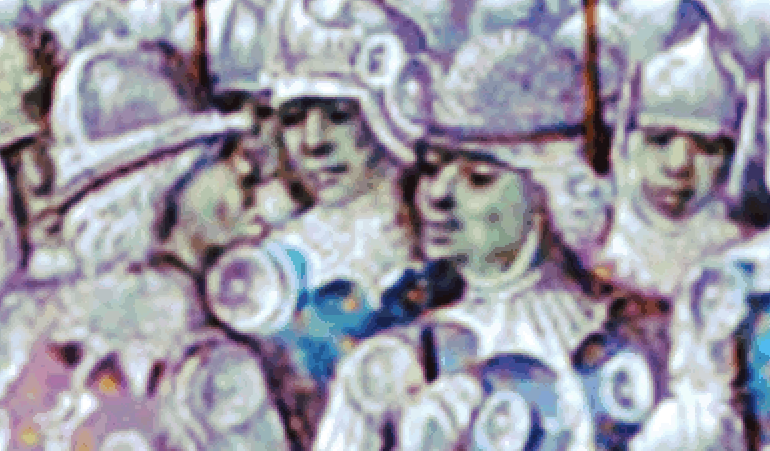
Surrender |
- Soon after, in January 1322, Edward's army, reinforced by the Despensers
who had returned from exile, had forced the surrender of the Mortimers.
- In March 1322, Lancaster himself had been captured after the
Battle of Boroughbridge.
- Lancaster was promptly executed, leaving Edward and the Despensers victorious.
Hugh Despenser the Younger was now firmly
ensconced as Edward's new favourite and together over
the next four years Edward and the Despensers imposed
a harsh rule over England, a "sweeping revenge" characterised by land confiscation, large-scale imprisonment, executions and the punishment of extended family members, including women and the elderly.. (Wikipedia)
|

English Heather |
- Some of the women that Edward persecuted and stole land
from were Isabella's friends.
- Isabella's relationship with
Despenser the Younger continued to deteriorate; the Despensers
refused to pay her monies owed to her, or return her castles
at Marlborough and Devizes.
- There is some evidence that
Despenser the Younger attempted to assault Isabella in some
manner.
- After that occurred, Edward began to be markedly less generous in his gifts towards Isabella, and none of the spoils of the war were awarded to her.
- Edward had taken Isabella along with him to all the battles
and given her 'jobs' to do that involved diplomatic roles in
whatever actions he was taking.
After surrendering to Edward's forces on 31 October 1321, Margaret, Baroness Badlesmere, Kent and her children were sent to the Tower, and 13 of the Leeds garrison were hanged. (Wikipedia)
|
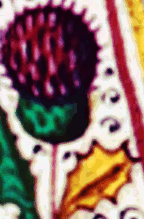
Royal thistle |
- By this time Isabella felt so antagonized and cut off
from her husband and his men, even worse the Scottish troops
began pursuing her.
- With the Scottish army marching south, Isabella expressed considerable concern about her personal safety and requested assistance from Edward.
- He considered sending Despenser forces to secure her, but Isabella rejected this outright, instead requesting friendly troops.

Cut off |
- Retreating south with the Despensers, Edward failed to grasp the situation, resulting in Isabella finding herself and her household cut off from the south by the Scottish army.
- She was left in a very vulnerable
position and the troops killed two of her ladies-in-waiting
while they were boarding a ship some of her knights had
commandeered.

Edward's winding
road |
- Isabella was furious both with Edward for abandoning her to the Scots, and with Despensers for convincing Edward to retreat rather than sending help.
- She fled from her home to safety but she was furious at
Edward and his 'pet' and she let him know.
- Isabella effectively separated from Edward from here onwards, leaving him to live with Hugh Despenser.
"I feel that marriage is a union of a man and a woman, holding fast to the practice of a life together, and that someone has come between my husband and myself and is trying to break this bond; I declare that I will not return until this intruder is removed, but, discarding my marriage garment, shall put on the robes of widowhood and mourning until I am avenged of this Pharisee." (Isabella
of France)
|
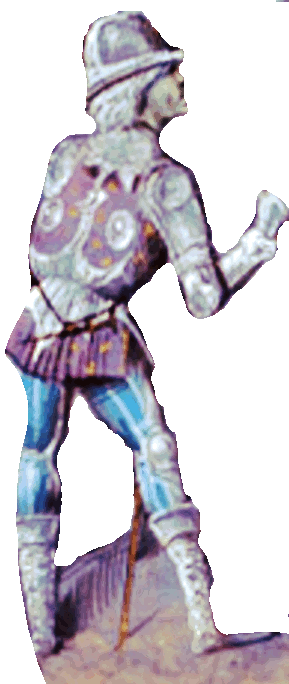
Edward |
- Sickened by the sight of Edward II, at the end of 1322, Isabella left the court on a ten-month-long pilgrimage around England by herself.
- To make matters
worse, problems arose with her native France.
- Isabella
grew fearful of her connections in France in the midst of her
husband's tense political landscape.
- On her return in 1323, she visited Edward briefly, but was removed from the process of granting royal patronage.
We are deprived the sunshine of our life.
(Christopher Marlowe, Edward II) |

Despenser family
member |
- At the end of 1324, the king and the
Despenser family snatched Isabella's lands, overtook her
household, and put her French staff behind bars.
- They
also took her younger children away from her and put them in
the care of the Despenser's.
At this point, Isabella appeared to have realised that any hope of working with Edward was effectively over and begun to consider radical solutions. (Wikipedia)
|
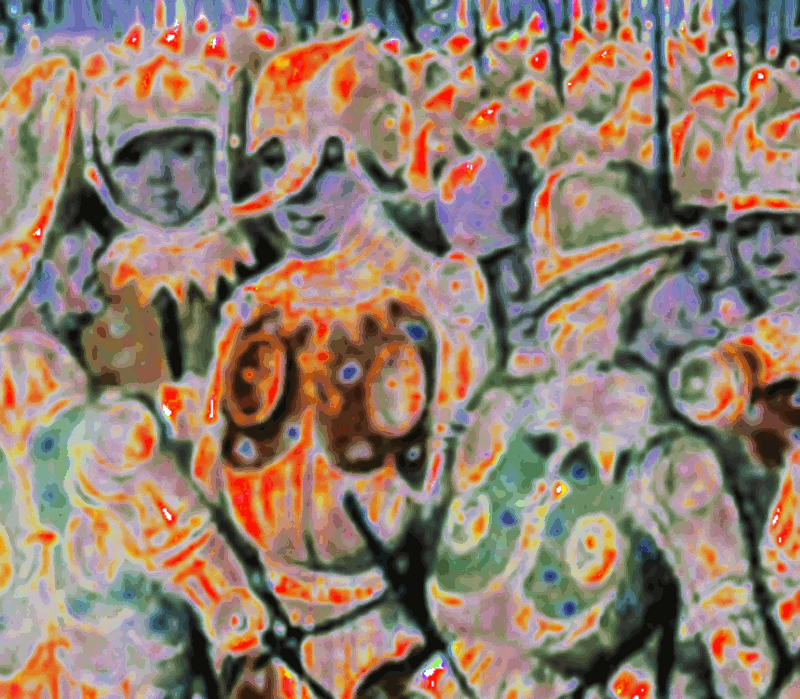
Barons at war |
- Isabella could not tolerate Hugh Despenser,
despite trying to forge an agreeable relationship and by 1325, her marriage to Edward was at a breaking point.
- Isabella was 30 years old when all this took place and
Edward was 42.
- His new relationship with Despenser caused an uproar among the barons and
they picked up the same battle they had just finished with
Piers Gaveston.
- Edward II and Isabella found themselves
once again in the thick of battling with Scotland.
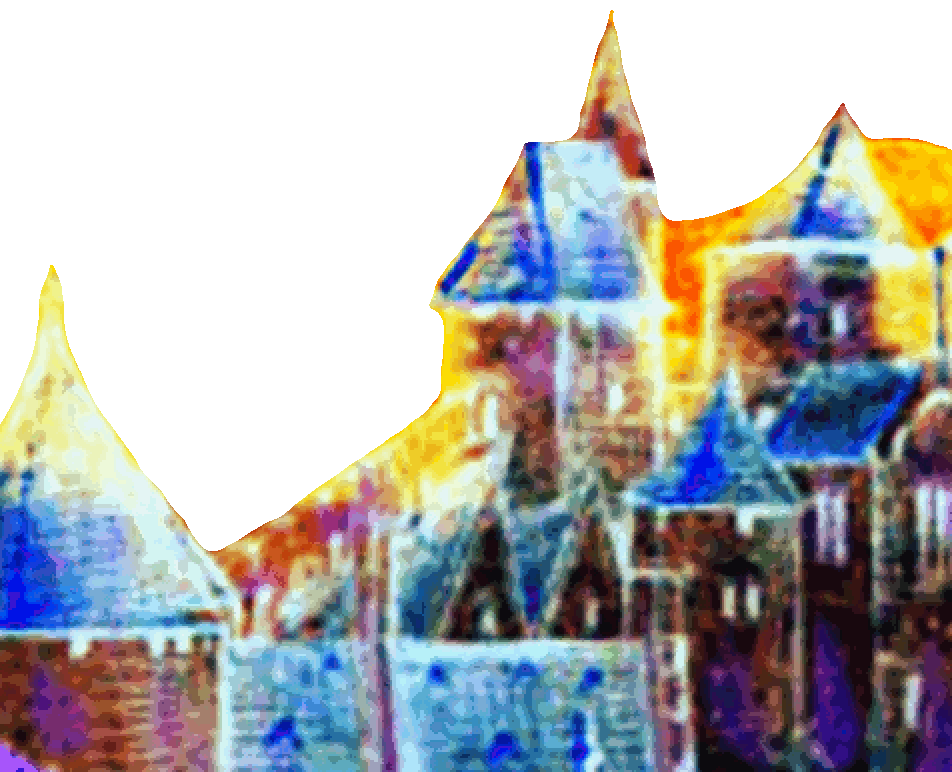
French royal
possessions |
- After much bickering between France and England,
Isabella's brother, King Charles IV of France, seized all of
King Edward IIs possessions in France in 1325.
- In
response, Edward planned a trip for Isabella to her home
country in an attempt to broker some kind of peace treaty.
- Many English nobles viewed this as a sign that England's
power was fracturing.
- However, her presence in France became a focal point for the many nobles opposed to Edward's reign.
- They didn't know the half of it
because while Isabella was trying to smooth over both French
and English egos, she was doing something else entirely in the
French court.
Edward II sent Isabella to France in March 1325 to negotiate a peace settlement on his behalf, the queen might have believed that Edward still relied on her and needed her, despite Hugh Despenser's prominent presence in his life. (edwardthesecond.blogspot.com)
|
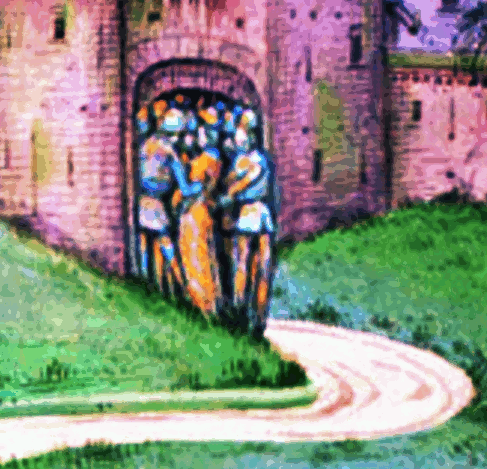
Queen Isabella
diplomatic mission |
- Traveling to France on a diplomatic mission, there is
convincing evidence that Isabella may have begun an affair with Roger Mortimer,
whom she met in Paris.
- He was an English nobleman
and powerful marcher lord who gained many estates in the Welsh
Marches and Ireland following his marriage to a wealthy
heiress.
- They both loved fine art, enjoyed spending money
and had both long despised the Despensers.
- Isabella and Roger Mortimer may possibly have agreed at this point to depose Edward
II and oust the Despenser family.
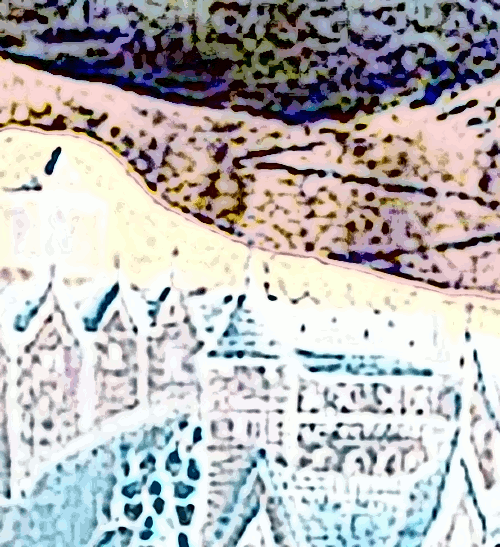
Aquitaine |
- In the subsequent War of Saint-Sardos, Isabella's uncle,
Charles of Valois, successfully wrested Aquitaine from English
control.
-
Aquitaine is situated in the southwest corner of metropolitan France, along the Atlantic Ocean and the Pyrenees mountain range on the border with Spain.
- By 1324, Charles declared Edward's lands forfeit and occupied the entirety of Aquitaine apart from the coastal areas.
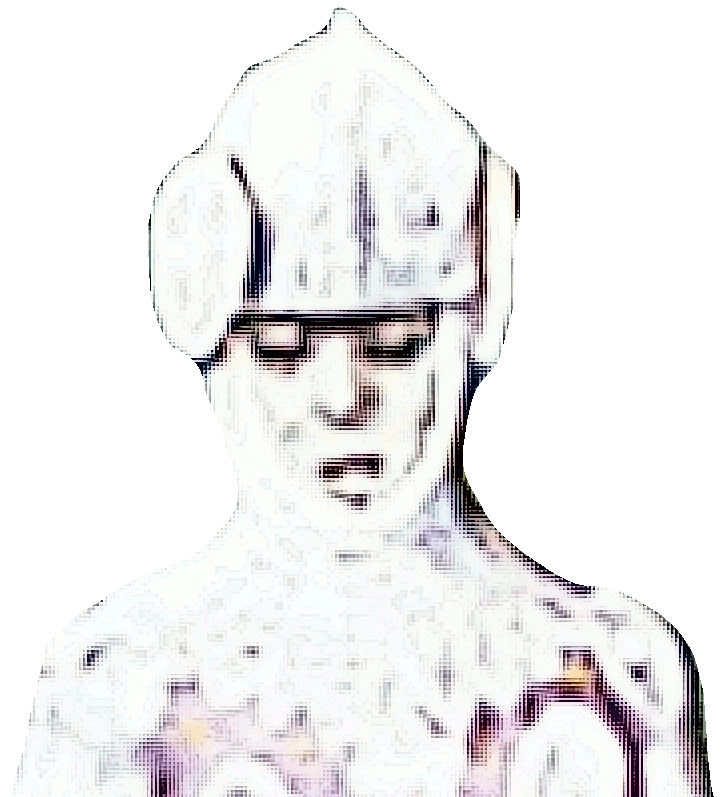
Roger Mortimer |
- Roger Mortimer (1287-1330) was called 3rd Baron Mortimer of Wigmore
and the 1st Earl of March.
- Like many noble children of his time, Mortimer was betrothed at a young age, to Joan de Geneville (1286-),
2nd Baroness Geneville, the daughter of Sir Peter de Geneville, of Trim Castle and Ludlow.
- Mortimer was married in 1301 when he was aged 14 and their
first child was born in 1302.
- They had 12 children
together.

Mortimer the rebel |
- When it came to rebelling, Mortimer had history going
back to 1321 when he was involved with a group of other
opposing Lords in leading the Dispenser war against the
Dispenser family.
Edward II in a letter to the sheriffs stated "...the queen is adopting the counsel of the Mortimer, the king's notorious enemy and rebel, and of other rebels, and that she is making alliances with the men of those parts and other strangers...to come in force with the king's son against England, to aggrieve and destroy the king's men and his people. In case the queen and Edward [of Windsor, their son] come in the ships sent for them by the king with their household only in good manner, according to the king's will and commandment, the sheriff is ordered to receive them honourably and courteously." (edwardthesecond.blogspot.com)
|
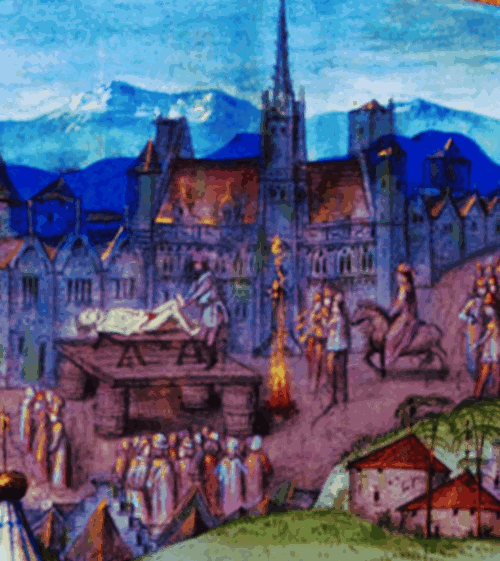
Criminal gangs |
- Edward was still unwilling to travel to France
where he needed to pay homage for lands the French kings had
awarded him.
- This was due to precarious conditions as criminal gangs were occupying most of England and there had been an assassination plot against Edward and Hugh Despenser in 1324.
- This was a plan by the famous magician John of Nottingham
who was hired to kill both using necromancy.
- It wasn't only herself she was asking Edward to choose over Hugh, she had their elder son, Edward of Windsor, with her in France.
- Edward II demonstrated over the next few months that keeping Hugh close to him, and defending him against any and all accusations, was his number one priority.
Indeed, the fact that Hugh Despenser the Younger now had so much power that he could persuade the king of England not to meet the king of France might well have shocked Isabella profoundly, however much she had grown used to Hugh's political dominance over the previous few years. (edwardthesecond.blogspot.com)
|

Isabella negotiates
a peace treaty |
- Opposition to Edward IIs regime
grew, and when Isabella was sent to France to negotiate a
peace treaty in 1325, she turned against Edward and refused to
return citing that she feared for her life.
- She thought
the Despensers would kill her or that even Edward himself
would.
- Edward began to send urgent messages to the Pope
and to Charles IV, expressing his concern about his wife's
absence, but to no avail.
- Emissaries sent by Edward
reported that Isabella was dressed as a widow, claiming that
Hugh Despenser had destroyed her marriage with Edward.
Isabella surrounded herself with mostly exiles, including Edmund of Kent, John of Brittany, Earl of Richmond, and her rumored lover Roger Mortimer. (Wikipedia)
|
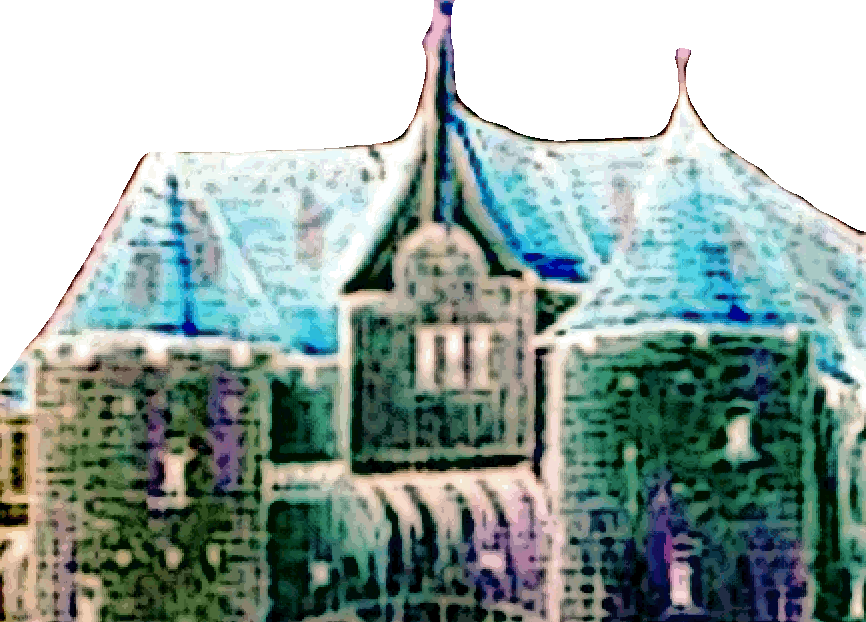
France |
- Roger Mortimer and Queen Isabella of France were deeply involved in a controversial relationship that led to the deposition and likely murder of Isabella's husband, King Edward II.
Isabella of France was highly intelligent, competent and a canny politician, not to mention the crowned and anointed queen of England, not some teenager making up a story to her parents because she wanted to sneak out with her boyfriend. (edwardthesecond.blogspot.com)
|
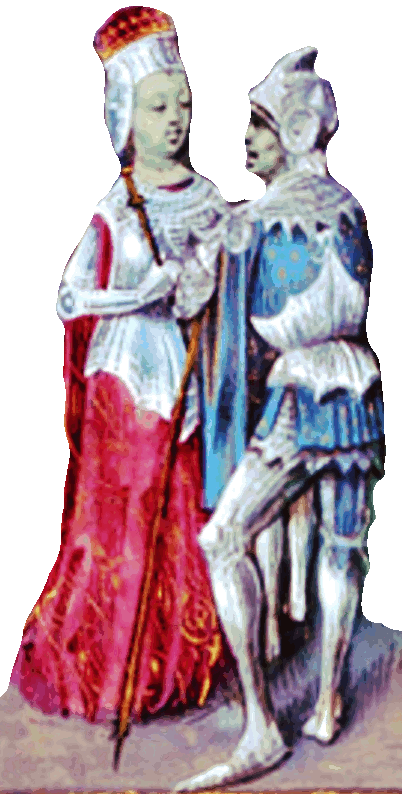
Queen Isabella and
Roger Mortimer |
- Mortimer, a powerful nobleman, became Isabella's lover while she was in France.
- They formed an alliance there after Mortimer escaped from
imprisonment in the Tower of London for troubles he caused
during the Dispenser war.
- He made a spectacular escape
after some friends in high places drugged his wardens at a
feast.
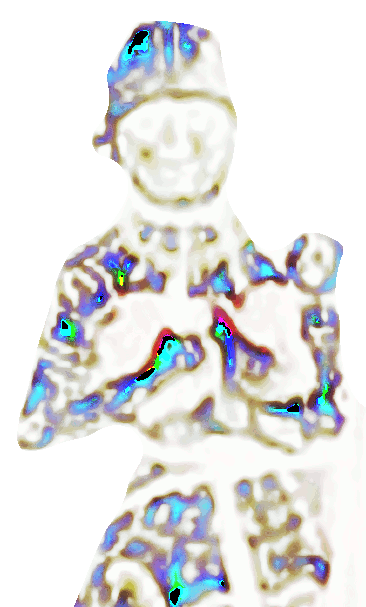
Edward ghosted |
- Back in England, King Edward II caught wind of what was
going on and he did everything in his power to get Isabella
to return.
- By mid-1326, Isabella had a plan of action
after months of unrest.
- Gathering allies and stewing in
her resentment for Edward II, she gathered an army complete
with warships, some speculate with Mortimer.
- They soon
set sail for England.
Hugh Despenser the Younger, who threatened to have barons hanged if they didn't give him the lands he wanted and who imprisoned his own loyal supporters and said he would hurt them if they didn't follow his instructions to the last dot on the i, was a pretty darn scary person, after all. He wasn't Piers Gaveston, who irritated a lot of people but who was, basically, harmless. (edwardthesecond.blogspot.com)
|
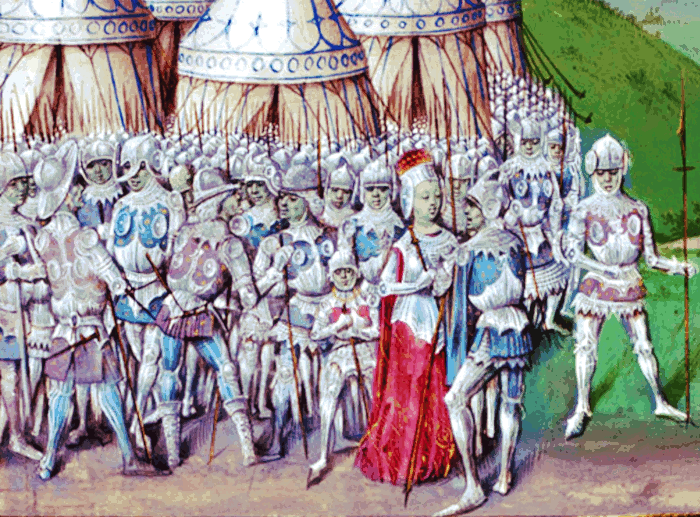
Queen Isabella and
army |
-
Isabella returned to England
with Mortimer after spending a year in France.
- She had
equipped a small mercenary army in 1326, and they landed at
Orwell on the east coast of England.
- They invaded England after Isabella drew up the plans and as they marched
along they gathered many supporters.
- The invasion was
actually incredibly easy because most everyone was against the
Dispensers and many greeted her as a savior.

Seaweed |
- By now desperate and increasingly deserted by their court, Edward and Hugh Despenser the Younger attempted to sail to Lundy, a small island in the Bristol Channel, but the weather was against them and after several days they were forced to land back in Wales.
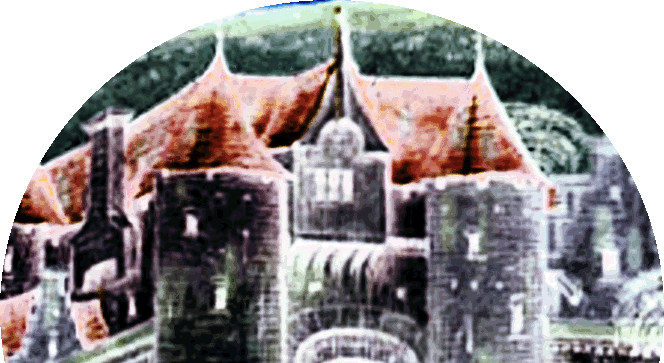
Bristol |
- Within a few months they had not only rounded up Hugh
Dispenser the Elder but they also stormed Bristol where Edward was
headquartered and detained and arrested him.
- When
Bristol fell, Isabella was able to recover her daughters Eleanor and Joan, who had been kept in the Despensers' custody.
- They also
rooted out Hugh Dispenser the Younger and Edward where they
had been hiding in
Wales.
- All that was left to do was punish them.
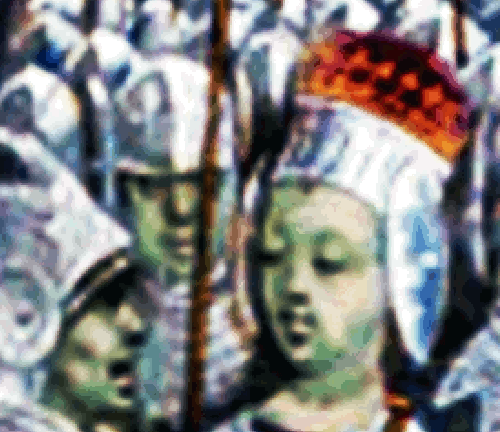
Isabella deposed
Edward |
- The King's forces deserted him and Isabella deposed Edward, becoming regent on behalf of her young son, Edward III.
- Together, Roger Mortimer and Queen Isabella orchestrated a successful invasion of England, leading to Edward II's forced abdication and Mortimer's de facto rule as regent.
- Isabella's army had overthrown King Edward II.
Isabella and Mortimer returned to England with a mercenary army, seizing the country in a lightning campaign. The Despensers were executed and Edward was forced to abdicate – his eventual fate and possible murder remains a matter of considerable historical debate. (Wikipedia)
|
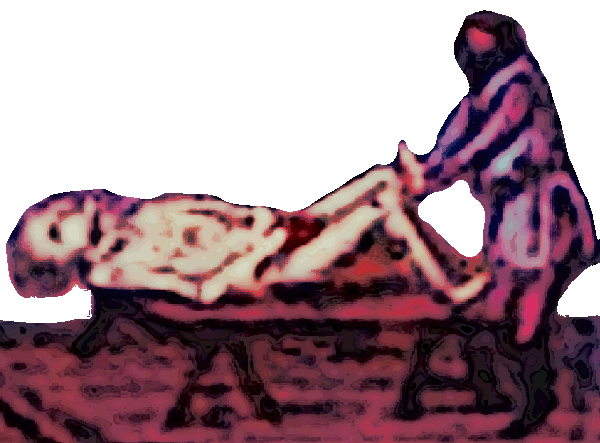
Hugh Despenser |
- After the overthrow of Edward, Despenser was eventually
charged with high treason.
- Despenser suffered the traitor’s death
and was tortured horrendously in Hereford on November
24, 1326, on the orders of the queen-consort of England, Isabella of France.
- He was hanged as a thief which was a low insult for a noble
born man and then he was drawn and quartered.
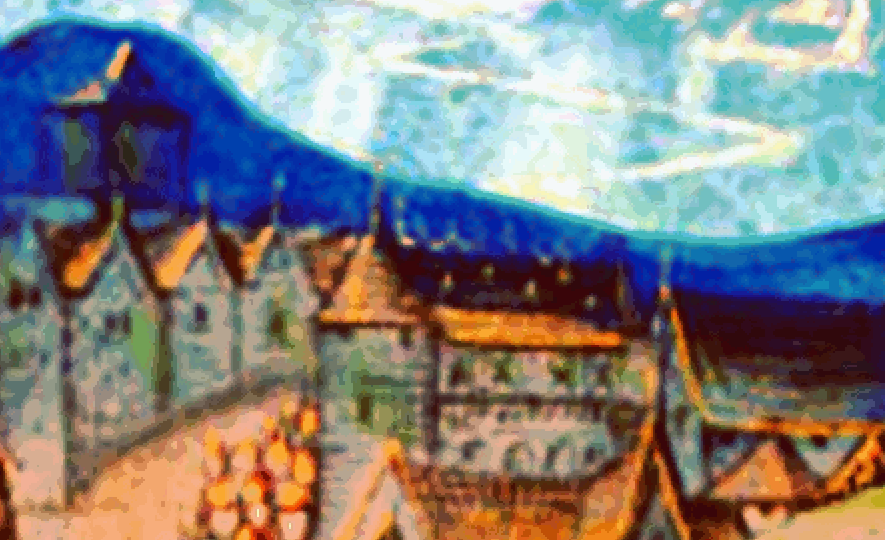
Barkley Castle |
- There was no mercy given to Isabella's enemies, even if
she wanted to give it because her supporters were angry and
bloodthirsty.
- She tried to save Despenser from some of
their wrath but was unable to.
- He died, some say an
incredibly brutal death, but this has never been proven or
disproven.
- The Dispenser's remains were quite literally
fed to dogs while Edward's favorite endured men scrawling
biblical verses on his skin.
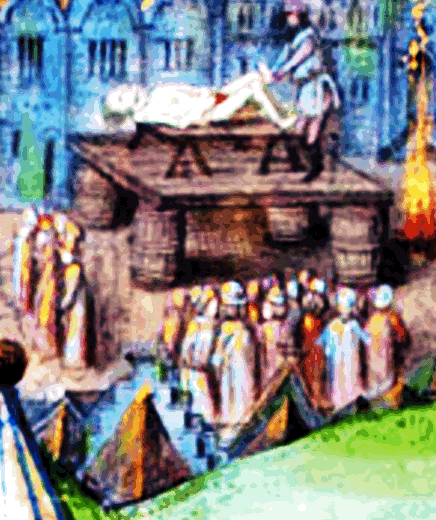
Town square |
-
Royal chamberlain, Hugh Despenser is shown on
the platform in the town square.
- But Isabella still had a
problem, because not only was Edward II still her lawful
husband, but he was still also the lawful king.
- Although
Parliament promised to sentence him to a life of house arrest,
Isabella worried they wouldn't follow through or even it they
did, that it wouldn't be enough.

Berkeley Castle |
- Edward II was imprisoned and later moved to Berkeley
Castle on the Welsh border.
- Isabella received word that
Edward had died from a vague fatal accident or illness while
in captivity.
- Edward's body was apparently buried at Gloucester Cathedral, with his heart being given in a casket to Isabella.
In actuality, there is little evidence of anyone deciding to have Edward assassinated, and none whatsoever of the note having been written. Similarly, accounts of Edward being killed with a red-hot poker have no strong contemporary sources to support them. (Wikipedia)
|
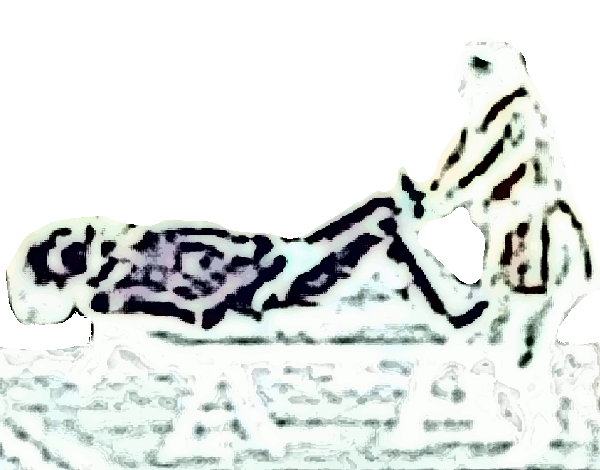
Edward sick |
- Given the seeming convenience of his death
for Isabella, historians have argued for centuries about
whether he was murdered by Mortimer and Isabella.
- That
has never been determined, Isabella certainly had the motive
however, Edward had a lot of enemies.
- Truth of the
matter, no one seems to know how he died.
Berkeley Castle, in Gloucestershire, England, was indeed built as a March Castle to defend the Welsh border, and the Berkeley family has occupied it for over 900 years. Although not technically on the Welsh border, its position overlooking the River Severn and facing towards Wales provided a defensive advantage against Welsh incursions.(Assistant)
|
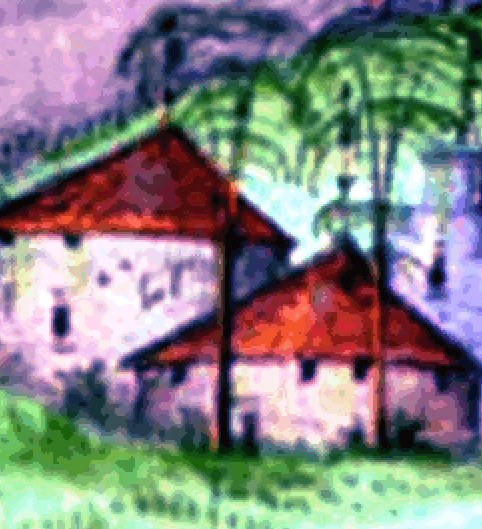
Tropical island |
- Their were persistant rumors after Edward IIs death that
he didn't actually die, but had escaped and was living
somewhere else.
- While Edward wouldn't be the first ruler
to be subject to rumors like this, he's one of the few that
historians support this theory.
- Historians examined an
historical letter from the 1340s that claimed that he was
still alive and argued that he had in fact, lived under a
differant name for the remainder of his life.
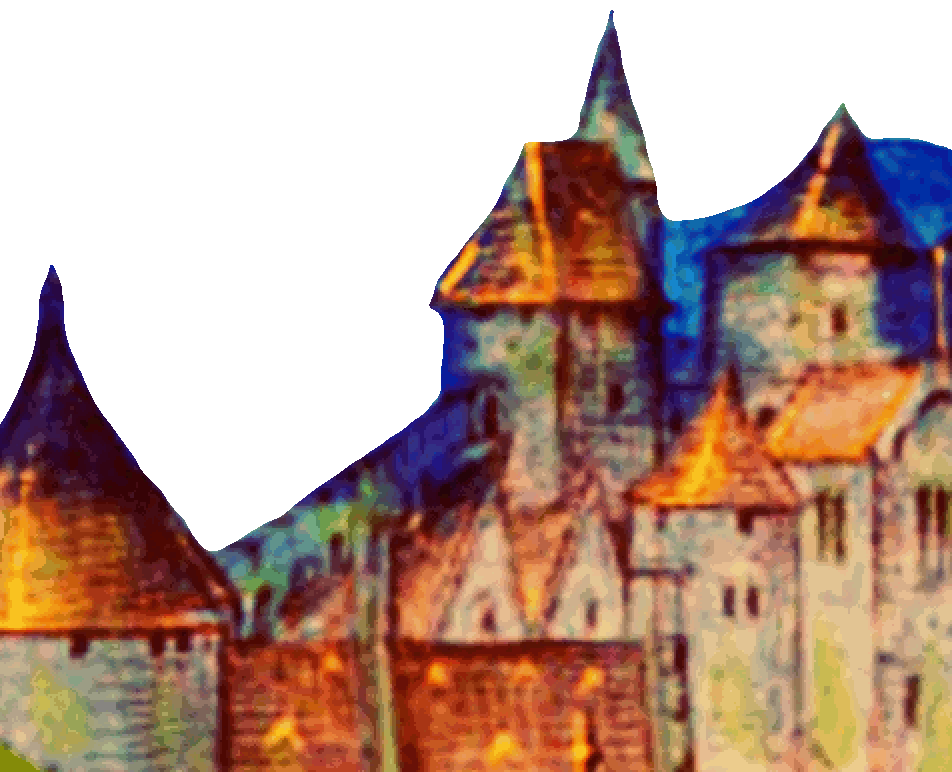
Kingdom |
- After Edward II's forced abdication and eventual death,
which some called murder,
Mortimer became the de facto ruler of England.
- Isabella and Mortimer ruled in her son Edward III’s name until 1330.
- She had gotten everything she wanted when she returned from
France, however, her regime began to unravel quickly, partly because of her lavish spending.
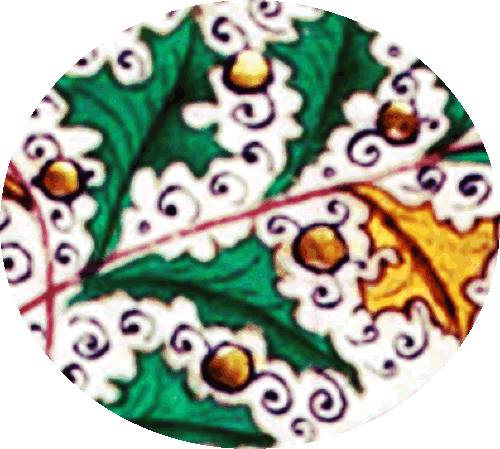
Baubles |
- Isabella and Mortimer had always enjoyed expensive
things including flashy shows of power and this didn't sit
well with the overthrown court.
- The Queen successfully, but unpopularly, resolved long-running problems such as the war with Scotland.
- Soon tensions with the barons were flaring up again,
nearly leading to civil war, this was, until Isabella's son
took matters into his own hands.
Farewell, fair queen. Weep not for Mortimer.
(Christopher Marlowe, Edward II) |

Edward III removing his
mother's apron
strings |
-
By 1330, Isabella and Mortimer's regime was increasingly insecure, and Isabella's son, Edward III, was growing frustrated at Mortimer's grip on power.
- Just days before turning 18, it all came to a
dramatic climax when Edward III forcibly asserted his authority
and came into his own.
- The new king had no love lost for
the way his mother and her lover spent the kingdom's money,
and even less for Mortimer himself.

Nottingham Castle |
- Edward III garnered supported from certain nobles and
the church and Isabella and Mortimer worked to protect
themselves by moving into Nottingham Castle with their loyal
troops protecting them.
- Shortly after, both were seized inside
the castle after a force of 23 came in through a secret tunnel and
Isabella knew immediately what was happening.
- As she was
dragged away she begged for Edward III to spare Mortimer's
life but it was no use.
Fighting broke out on the stairs and Mortimer was overwhelmed in his chamber. Isabella threw herself at Edward's feet, famously crying "Fair son, have pity on gentle Mortimer." (Wikipedia)
|
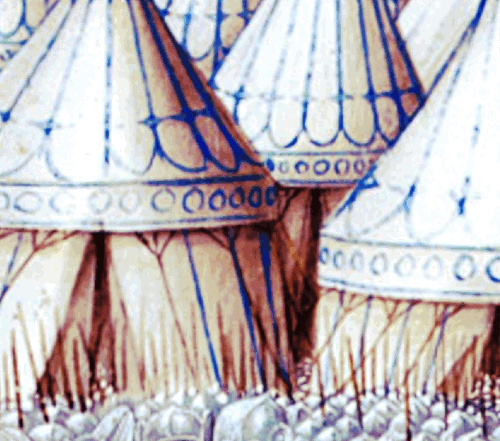
Lancastrian
troops |
- Lancastrian troops rapidly took the rest of the castle, leaving Edward
III in control of his own government for the first time.
- Mortimer was hanged in November 1330, and his
body was displayed on the gallows for the public to witness
for 2 days although Edward showed leniency.
All live to die, and rise to fall.
(Christopher Marlowe, Edward II) |

Isabella's winding road |
- Isabella managed to save herself in this debacle, most
likely because she was the kings mother, and she was only imprisoned for a
short while under house arrest at Windsor Castle.
- Isabella and Mortimer ruled together for four years, with Isabella's period as regent marked by the acquisition of huge sums of money and land.
- When their political alliance with the Lancastrians began to disintegrate, Isabella continued to support Mortimer.
-
Her true
punishment was invisible and there is evidence she suffered a
nervous breakdown after Mortimer's death and it took some time
for her to regain her health.
Isabella was portrayed as an innocent bystander
during the proceedings, and no mention of her sexual relationship with Mortimer was made public. (Wikipedia)
|
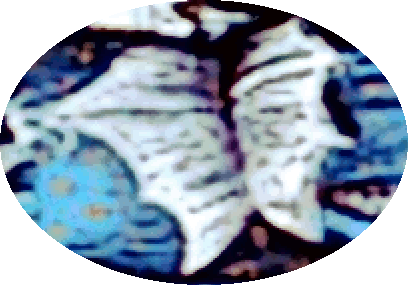
Social butterfly |
- Isabella remained a fixture in the royal court and
became something of a social butterfly.
- Retaining her
interest in jewels and amassing wealth, she doted on her
family, especially her daughter Joan, Queen of Scots, and her grandson Edward, Prince of Wales.
- Two of Isabella and Edward IIs daughters, Joan, Queen of
Scots, and Eleanor of Woodstock, were placed under the guardianship of Ralph de Monthermer and Lady Isabella de Valence
in 1321 when Isabella was staying in the Tower of London.
She lived out her remaining years as a wealthy courtier and grew close again to her family, especially her daughter Joan, Queen of Scots, and her grandson Edward, Prince of Wales. (Wikipedia)
|
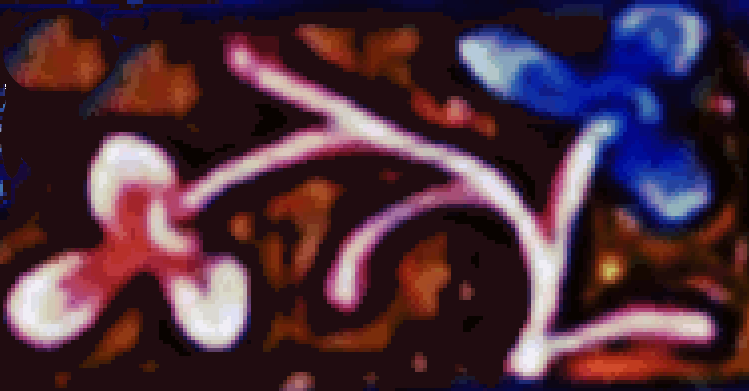
Pansy |
- Isabella, who was in her early 60s, died quietly at
Hartford Castle on November 22, 1358.
- She was buried in the mantle she had worn at her wedding and at her request, Edward's heart, placed into a casket thirty years before, was interred with her.
- Edward III had her buried with the heart of his father,
her late husband, Edward II, around her neck at Greyfriars Monastery in London.
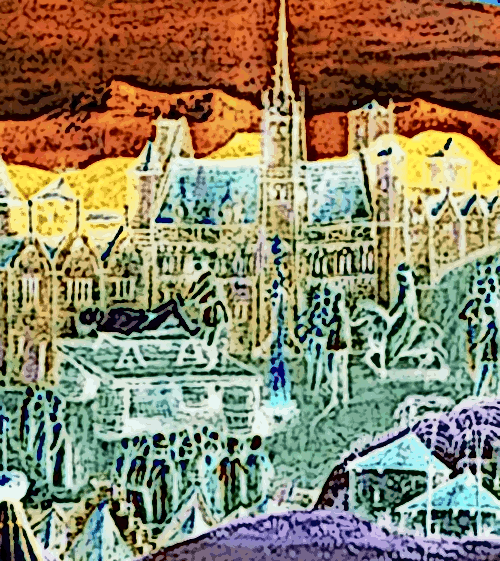
Circus |
- There seems to be a lot of historians who blame Isabella
for being so ruthless but was it really her?
- It seems
more like the work of the barons and lords who detested Edward
II and so many of their tactics were standard torture
procedures designed long before Isabella was even born.
-
Also, don't forgot about how Edward II was a failure of a
husband and she was forced to marry him at age 12 when he was
twice her age.
- And that he replaced Isabella
with gay lovers, first with Gaveston and later with Despneser who was
despicable to her.
- Then he lavished all his time and attention
on his favorites, and also gave them the royal treatment that
she was entitled to.
- The barons were upset because he
gave so many royal duties to his favorites and spent a lot of
money on them.
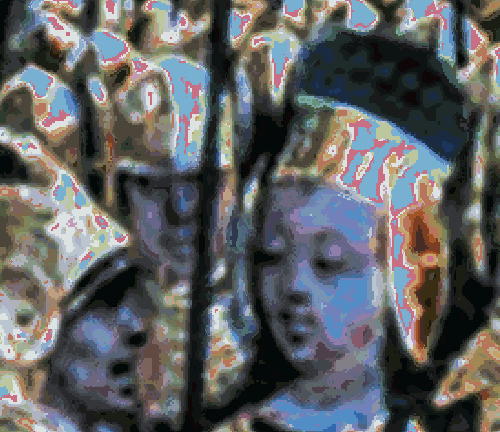
Stressed out |
- On top of that, the queen had to deal with
the entire Despenser family who were controlling Edward II and
by default, the government, which made Isabella's life
unbearable.
- Additionally, the barons and earls were all
after Edward II and because of his lovers, he was starting
wars and causing depressions in the economy.
- The
Despneser's were also vindictive and stripped Isabella
of her land, wealth and even her youngest children for a time.
- Some say that Isabella and Edward had the
worst royal marriage in history.

Running thick |
- To blame all the cruelty that occurred on Isabella, also
seems unreasonable when reviewing the actions of the
bloodthirsty barons who were after Edward II before she even
arrived.
- Also, Edward's brutal death, if true, was never
proven to be inflicted by Isabella and frankly seems like
something the baron's were more capable of than her.
- The
barons also carried out the torture and deaths of both
Gaveston years earlier, and the Despenser family.
- They
used the 'standard' methods they employed on all their
victims, hanging and drawing and quartering.
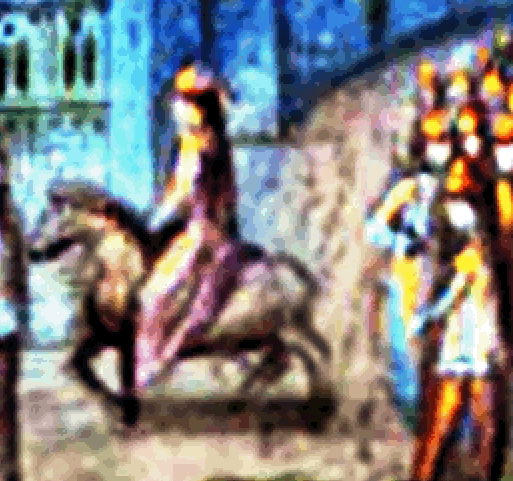
Edward III trots off
to the 100 Years'
War |
- Edward III went on to be one of the longest reigning medieval kings, his reign lasting 50 years.
- He built the Jewel Tower at the Palace
of Westminster.
- In the spring of 1333 Edward invaded Scotland.
- His time on the throne
was marked by constant war as England was thrust into
hostilities with France during the Hundred Years' War
(1337-1453).
- As the only grandson of Philip IV, through
his mother, Edward pursued his own claim to the French throne
and used it as a motive to launch the lengthy war.
And now my hope is full, my joy complete.
(Shakespeare, Edward III) |

Bordeaux |
- Edward III sired five legitimate sons with
his dear wife, Philippa, Queen of Portugal.
- Their eldest son, Edward
the Black Prince died one year prior to Edward III in 1376,
survived by a widow, and 9-year-old son, the future Richard
II.
- Edward III's title rightfully fell to young Richard
II who ascended the throne in 1377 at age 10.
- He was also known as Richard of Bordeaux,
and was King of England from 1377 until he was deposed in 1399.
Misgoverned kings are cause of all this wrack.
(Christopher Marlowe, Edward II) |
|

